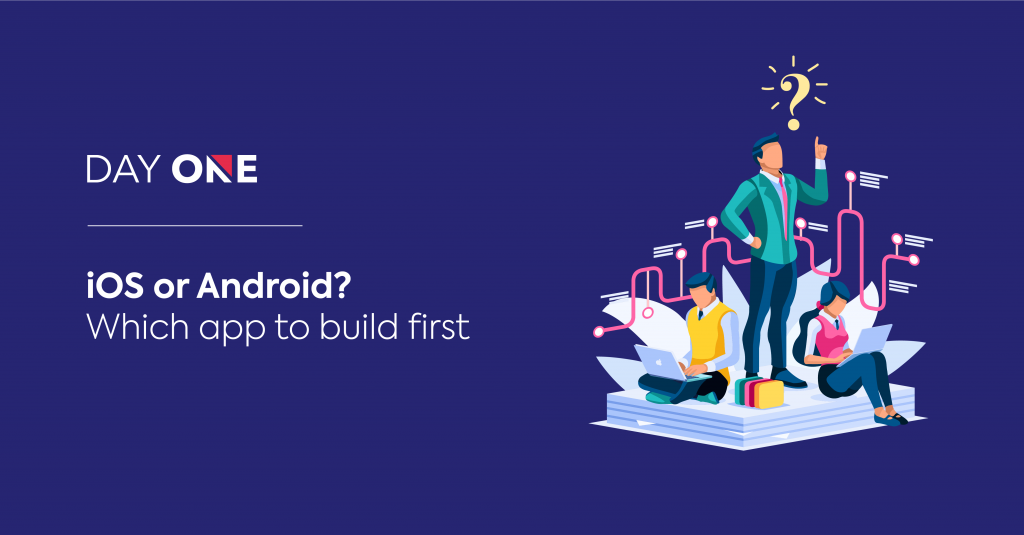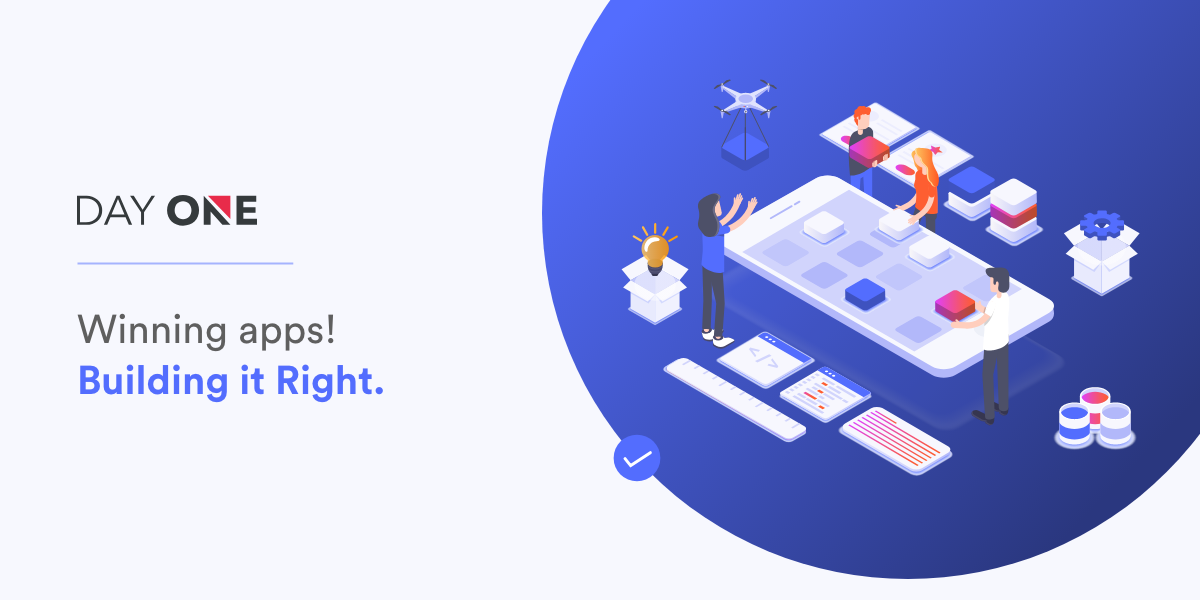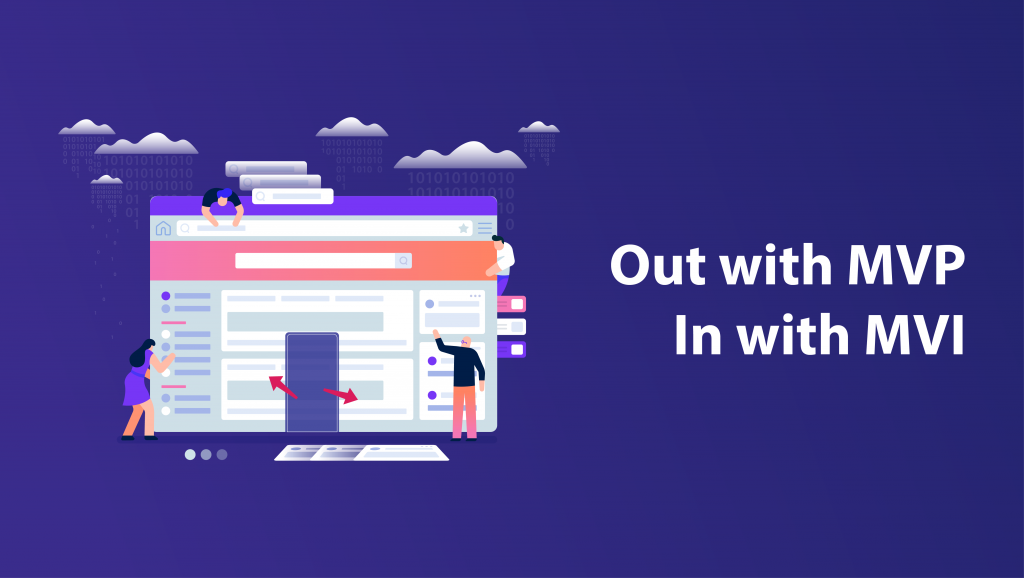iOS or Android: Which platform to build first?
admin
App Development
June 5, 2021
5 min read

Every discussion on mobile apps begin with a great product idea and then right onto discussions on the best platform to launch your product on.
At this point, if you do not have an in-house app development team, there are mobile app development agencies that can help to take your concept and build it into reality.
But then this is also where you will have to make a crucial business decision – you will have to decide which platform to build your app for?
Do you want to build an app for iOS users? Or for Android users? Or for both? Do you also want to include Blackberry and Windows app?
Of course, if you are building a mobile app for iOS and Android simultaneously, then it’s going to be a bit of a time consuming and costly affair. A phased single-platform development might be a better alternative at this point.
While we will discuss the pros and cons of having an Android v/s Apple app later on, what businesses need to keep in mind at this point is that Android and iOS users often belong to different demographics and display different user behaviors.
So, if a big bang approach is what you have in mind, it’s imperative that you are thorough with your audience, the market, the budget and all necessary prerequisites for the launch.
For instance, when SOS Method, a popular meditation and wellness brand, launched an evolved version of their app, they designed it for both iOS and Android. Meditation and mindfulness can be leveraged by people across the world and an all-platform launch was the best way to go about it.
With that, let us dig into a discussion on how to identify the right platform to build your mobile app on first.
Android v/s Apple: Which app to build for?
Identifying the platform you are going to launch your app is a core business decision. There are risks, finances, time, resources, brand name, and several other factors to consider during decision-making:
We recommend having a discussion with your app development team regarding the same. They have been building apps for different platforms, are more familiar with the nuances, and would make better suggestions as to whether to have your app first on the Google Play Store or Apple App Store?
However, consider the following before deciding on the platform:
Business Goal and Revenue Model:
This is the first thought you should be having – even before you consider other relevant factors.
What’s the purpose of your app? And what is the app monetization strategy you will be adopting? Is it a Free or Paid app?
As stated previously, Android and iOS users behave differently. For instance, in research by Creative Strategies, it was found that, on iOS, almost 45% of the user’s surveys, had 5 or more paid apps installed on their phones. For Android, the number stood at a disappointing 19% only.
Not surprisingly, in 2018, the Google Play Store made almost half of what the App Store made. While Play Store revenue from mobile apps amounted to an impressing $24.8 billion, Apple’s App Store gathered a whopping $46.6 billion.
So, if you are looking in terms of a lucrative bargain, an iOS platform is your money-making machine.
The Audience:
Your app is being built as a solution to a specific user pain-point. So make sure that your app is readily available to them. This means you will first have to consider metrics like audience demographics, location, income range etc. before deciding on your launch platform.
Apple is a premium brand and its products (whether the iPhone or iPad) is significantly more expensive than counterparts in Android (with the exception of the likes of the newly launched Samsung Galaxy S10). Sales reports will demonstrate that the majority of Apple’s users are based out of the United States, Canada, Western Europe, Australia and certain parts of APAC nations. They are also financially more progress and spend on app purchases.
The stats are different when it comes to Android phones. With handsets for every budget, Android sales dominate the markets in Asia, Africa and South America. The users also spend less on app purchases and even subscriptions.
As a marketer, based on your product and its offering, you will first have to identify where your maximum audience pool will be from and their demographics. This will help to determine whether iOS or Android will be your preferred platform.
The Review process:
Imagine being absolutely confident of your product and then not being able to take it to the market because of a stringent review process?
Yes, that’s a familiar scene for developers trying to launch their app on the App Store. Apple follows a rather stringent review process before launching the app in the App Store. Review processes are intense and can take as long as 10-15 days. Moreover, if the submitted app requires amendments, the entire review process is repeated.
Developers as such often use platforms like TestFlight to help them reduce the testing time.
So, if you are in a hurry to launch your app then make sure to save sufficient time for the Apple App Store Review process.
Matters are a lot more relaxed for Android launches. With a separate beta app store for testing, the Play Store makes it convenient for developers to test effectively and fill in the gaps. Developers can easily have the app launched in 2-3 days, while updates can be made live within hours.
But here’s the catch – the quick review process often populates and pollutes the Play Store with substandard apps; sometimes there’s also the risk of imitation and copies being made. And there’s the additional risk of having apps with malware in them.
P.S. When considering the store’s review process, don’t forget to look into the release cycle. Most iOS users usually use the latest software update. Android users, on the other hand, are often not up-to-date on the current operating platforms.
Fragmentation:
Apple’s iOS is associated with all of its products – the iPhone, the iPad (even Tablets support apps, though when people usually speak of apps they refer to mobile apps only) and Mac.
When it comes to Android, however, the names are diverse. There’s Samsung, Google Pixel, Huawei, Mi, LG, OnePlus, HTC and several others that are supported by Android.
With Android, standardization falls short, fragmentation wins.
Fragmentation of Android is one of its recurring challenges and extends to software, device, components etc. This makes the entire mobile app development process (including Testing) time-consuming.
Timeline:
Time is money – and when determining whether to choose Android or iOS, never ignore the timeline.
As discussed previously, Apple products are more secure, and often comes with exclusive and limited features. Development is lesser time consuming (considering most iOS users maintain an up-to-date OS), though the review process can delay app launch.
On the other hand, Android’s fragmentation affects its timeline. Development takes almost twice or thrice the time required by iOS, and there’s a lot of adaptations to be done in terms of hardware, screen sizes, etc.
What you need to do is understand timelines and delivery dates precisely from your developers. And keeping other factors in mind, determine on the platform.
Mobility solutions and mobile apps are transforming businesses. While Android phones are dominating sales and have a significantly larger user base, it’s not always the best option for development.
So consider all factors and decide on the right platform for your app!
Explore More Blogs
Testimonials What customers have to talk about us
Finch (previously Trio) – Growth with Investing, with benefits of Checking
Reading Time: < 1 minThe Finch (previously Trio), one of our clients today has reached this level with our expertise and with a great team of developers in Day One, who have made every stone unturned in making this project a big success.
Neel Ganu Founder
USA
Vere360 – VR based Immersive Learning
Reading Time: < 1 minDay One helped Vere360 “fill skill gaps” and build a platform that would cater to their niche and diverse audience while seamlessly integrate the best of #AI and #VR technology.
Ms. Adila Sayyed Co-Founder
Singapore
1TAM – Video Blogging Reimagined
Reading Time: < 1 min‘1TAM’ was only for iOS with gesture-based controls, advanced video compression techniques, and a simple architecture that allowed actions to be completed in 2-3 taps. The real challenge for ‘1TAM’ was to keep it distinct which bought brilliant results with all the strategies and approaches implied for best video compression techniques.
Anwar Nusseibeh Founder
UAE
Fit For Work – The Science of Workplace Ergonomics
Reading Time: < 1 minDay One Technologies came with the expertise that was required and helped in building a platform that is edgy, functional, and smart, delivering engagement and conversions at every step.
Ms. Georgina Hannigan Founder
Singapore
SOS Method Meditation for ‘Busy Minds’
Reading Time: < 1 minDay One Technologies helped in building an innovative mobile app (for #iOS and #Android) that’s easy-to-use, engaging, and data-driven to help users reap the most at every point.






